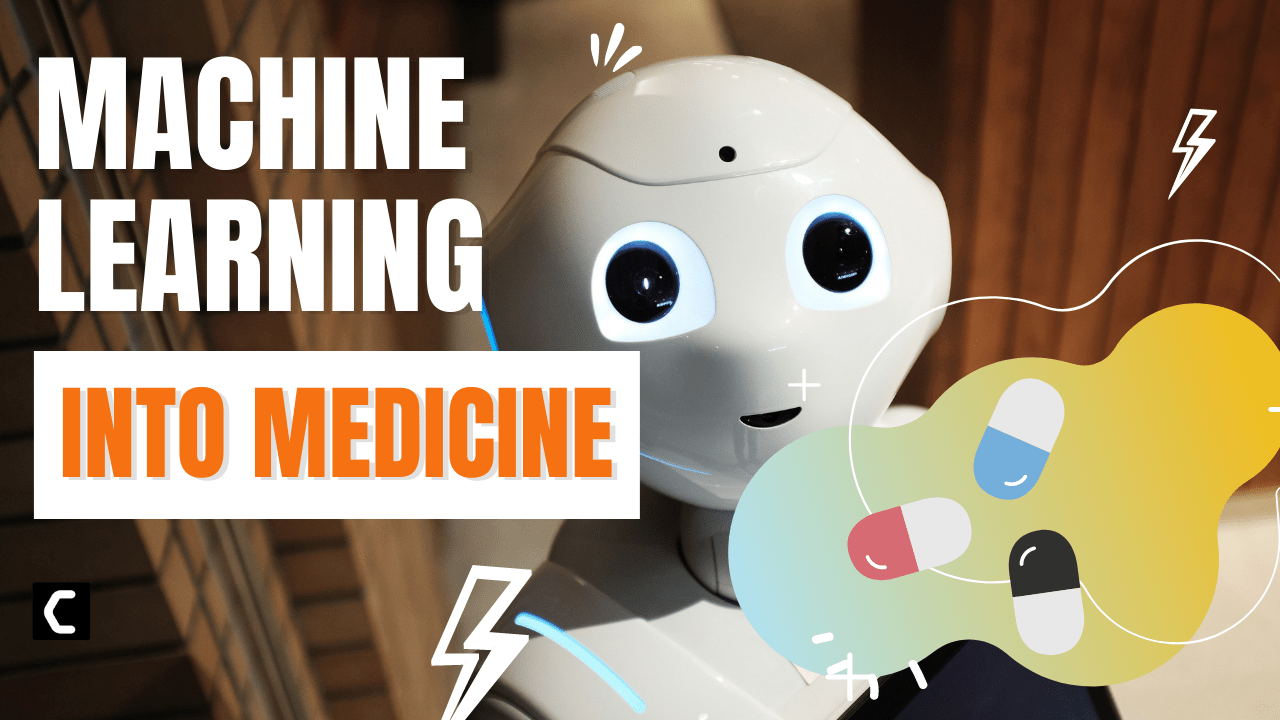Science or art?
Most people will consider medicine to be a science. Medical training is a practical, fact-based profession. However, it also involves creative thinking: combining all patient stories in a single one, as well as learning and observing.
Is it an art? It is more than you may think. This is why it seems almost absurd to introduce machines in the medical world. Despite the fact that machine learning is a science, it can’t be used in medicine. These robots cannot replace a doctor.
They can. They are. But not in the way that you might think.
Instead of robots scooting around GP offices, dispensing medication, machine learning is being integrated into the profession in a more nuanced way. Consider tasks that can be automated, but are still time-consuming below:
· finding more effective treatments
· making more precise diagnoses
· preventing side-effects and illnesses
Here, machine learning plays first fiddle.
What is Machine Learning?
This branch of artificial intelligence (AI), is very popular thanks to its ability to analyze large amounts of data quickly and accurately.
It is basically able to do things that would be impossible for a human to accomplish in a time.
It’s precisely this reason it fits in well in the medical world.
It is able to take large amounts of data from hospitals and medical records and change them into operative results much quicker than any human could. This could prove to be a lifesaver in a profession that values time.
Modern medicine relies heavily on continuous research. There is a lot of new information coming out every day, and modern medicine is dependent on it. It makes sense then, that machines may be more capable of analyzing and keeping up with data than the human mind.
Let’s be clear: Machine learning is not a sci-fi movie robot. It might be more appropriate to compare it to Scalable Insight.
This is how it works. AI technologies gather the knowledge of doctors and experience they got from thousands of patients. They then scale that information up to the level where it can fill studies and provide answers that may have taken much longer to find.
What does Machine learning for medicine mean?
Steve Harvey, Vice President of Watson Health at IBM summarizes the situation nicely: “The only way artificial intelligence can really impact healthcare is to be capable of cloning all of the expert knowledge so that you have access to all kinds of care, wherever you are.”
It’s almost like having all the doctors in the world come together and create one super-human doctor.
Accessing a super-human doctor quickly is becoming a highly-coveted skill within the medical profession.
Doctors have to get the information on illness, symptoms and new medicine at once.
Francesca Dominici is a professor of biostatistics at Harvard T.H. says: “Doctors are beginning to realize that machine learning is an option for them to make sense out of large amounts of data,” she says. Chan School of Public Health.
Let’s take an in-depth look at the process.
APOLLO Program, University of Texas’
The University of Texas’ MD Anderson Cancer Center uses machine learning technologies, named APOLLO program, to analyze genetic data. It guides doctors to the best treatment for each patient.
Cogito and Mental Health
Machine learning can help with more than just physical ailments. Many start-ups have developed apps to detect the symptoms of depression and bipolar disorder.
The Cogito mental health app uses machine learning technology and monitors social media activity to identify and draw out patterns in communication among depression sufferers. These insights can be used to predict when a patient is most likely to experience a depressive episode.
Is Machine Learning the Future of Medical World?
Although machine learning seems to be a trend in medicine, there are still some issues that must be worked out.
It isn’t widely accessible and available, as with all new technologies.
There are many amazing AI tools out there that work perfectly, such as Siri and self-driving vehicles, but it has had very little impact on the medical industry — which is perhaps understandable, since it is often a matter for life or death.
Can physicians really rely on machines to do the right thing?
It’s hard to believe, but doctors give blood thinner prescriptions only with 67% accuracy, and that cardiologists are unable to identify 250,000 of 300,000 people who will pass away yearly. Probably a single-step analysis of the huge volume of heart datasets by AI may save their lives, mightn’t it? By the way, today doctors have to work with a huge amount of data.
But we are still in the early stages.
Many software can be cumbersome, especially when it comes time to gather the knowledge of physicians and doctors. For those in the medical field, however, it can be a great thing to have a way of analyzing and collecting large amounts of data.
The human mind can be beautiful in so many ways. But, there’s always the possibility it could miss something. And, it can’t see the future.
New technologies are already available that can predict how severe a disease is in a patient, and what treatment options will work best for it.
It’s easy to see machine learning becoming an integral part of medical research and diagnosis.
It’s not about man against machine, but about the human mind working alongside machines.
Machine learning is still in its early stages. Although it has helped to improve certain aspects of medicine, we are still far from integrating machine-learning into our medical world.
We might see the greatest improvements in human health and progress in the coming years if we combine the genius of the human brain, the years of medical training, and machine learning.







